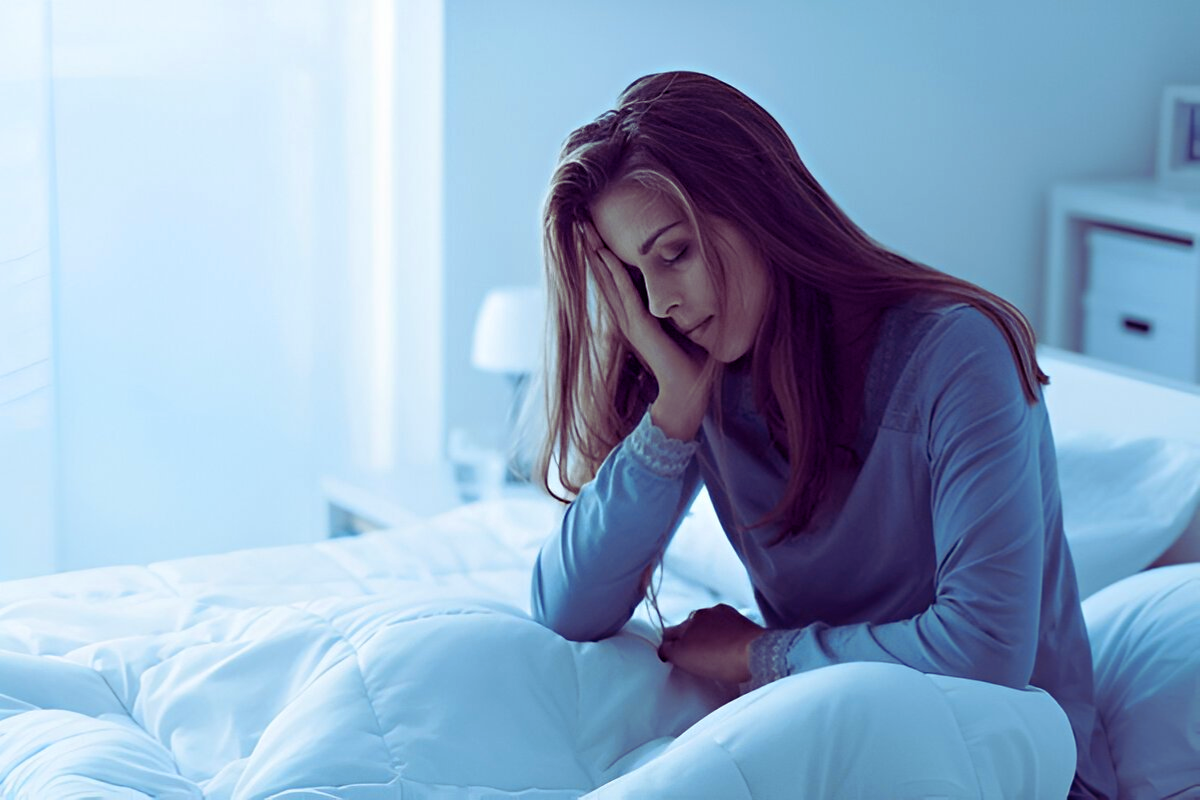In the beginning of 2025 a new study published discovered a leading cause of insomnia that links to the heart health of women which otherwise might have not been found. Some new evidence such as those from sleep experts reveals that women sleep in a very bad way from the rest of the men and are thus more likely to suffer from heart disease.
From this remarkable revelation that the researchers have come across, numerous conversations ensue between doctors and the public health professionals since nearly half a billion women turn to be either chronic or occasional insomniacs at some point in their lives.
Can sleeplessness cause heart disease in women, while it looks like everything is quiet?
Insomnia Increases Heart Attack Risk by 69 Percent
According to one study of the American Journal of Cardiology, there are 69 percent more chances that the people that have this disease will suffer from a heart attack. Nevertheless, the danger is not equal for all of the patients.
However, females seem to be at a higher risk of heart attacks. It was stated by the researchers that women who have sleep disorders tend to have an extremely high risk of heart troubles compared to men with the same concomitant problems.
The recent scientific discovery is in opposition to the previously widely held view that heart disease is more common in only the male population. Specialists today are concerned that bad sleep might be the first sign of cardio trouble in women.
Midlife Women Face 70 to 75 Percent Higher Risk
Similarly to this, in a study reported in the Journal of the American Heart Association, men were followed throughout at least a few years… where…, and those that were found out with sleep apnea at the age of 50-60 had some 70-75% risk of getting the heart disease in the future.
This comprises heart attacks, strokes, and continuing heart failure.
For many women, the midpoint of life is already a time of hormonal changes and increased stress, which is intensified by the bad sleep. The bad sleep may produce the “perfect hurricane” over a long time, which injures the heart.
How come women are more at risk?
The reasons why insomnia may affect women more than men are different.
First, the hormonal changes are very important. The change in estrogen and progesterone in the body during perimenopause and menopause can disrupt sleep quality and the overall heart function.
Secondly, females are more likely to tell about tension and depression—two psychological problems which are closely related to insomnia. These emotive causes may bring on an even bigger load on the cardiac system.
The third is the cardiac patient of women. They do have signs that are dissimilar to those of men and sometimes the symptoms are not severe. The signs of a sleep disorder may be an early signal that would usually get ignored.
What are the doubts that experts are dispelling
Sleep medicine specialists and regular doctors are advising women to attend to their insomnia as not only a quality-of-life issue but a life-threatening factor.
Dr. Martha Gulati, a prominent heart expert, does consider it a “clear signal” for women and their physicians after seeing the ever-growing studies of sleep and health.
“Sleep is merely a hitherto unknown privilege,” her point of view is. “It’s no more than a sign of life. Your heart might empathize with you if you don’t show one.”
She thinks that women who are constantly having difficulty getting to sleep, staying asleep, or waking up too early, should consult their doctors—especially if they are over 40 years old.
What Can Be Done?
The good news is that insomnia is treatable. This means that when it is treated, it is probable that the risk for this condition could also reduce.
Cognitive Behavioral Therapy for Insomnia (CBT-I) is one of the most effective non-drug treatments available. Besides, sleep apps are also available, such as the Sleepio app, which is designed to work together with relaxation techniques. The sleep treatments gained through lifestyle changes naturally improve the condition similarly to relaxation techniques.
The situation is that medical tests can also help rule out other sleep disorders. For example, obstructive sleep apnea can further increase cardiovascular risk.
For women in their nearing midlife or older, it is advisable that they take the health parameters of blood pressure, cholesterol, and sleep patterns as one group and follow them.
If you’re a woman struggling with insomnia, don’t ignore it. A new study has found a link between how long you sleep and the health of your heart, that if studied further could give even more accurate results.
With new evidence showing a 70 percent rise in cardiovascular risk, experts are asking for more attention to, and ultimately, earlier screening, and proactive care for those women who are restless and sleepy.
Insomnia is something more than an irritant; it is rather a signpost. And in 2025, that sign is really obvious.
First things first, prioritize your sleep. You would not really feel the difference, but believe me; your heart will be the first one to cheer you up!

